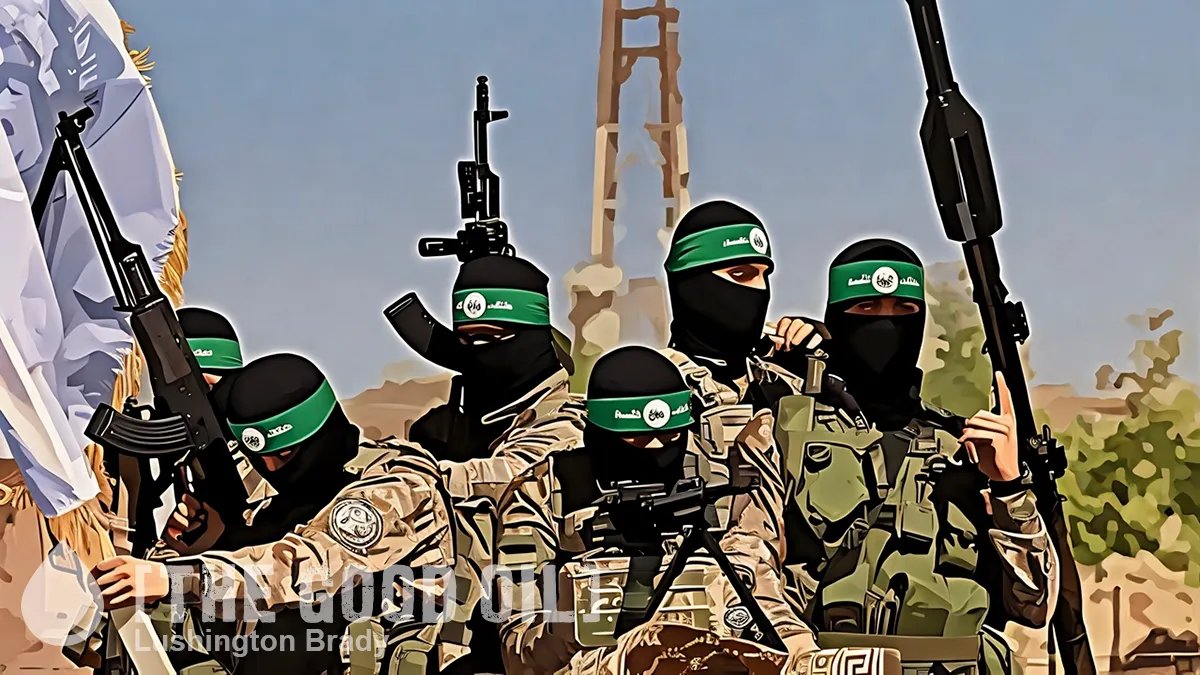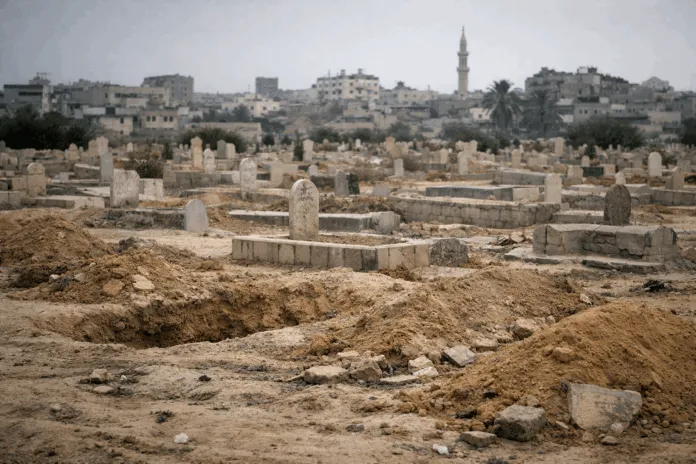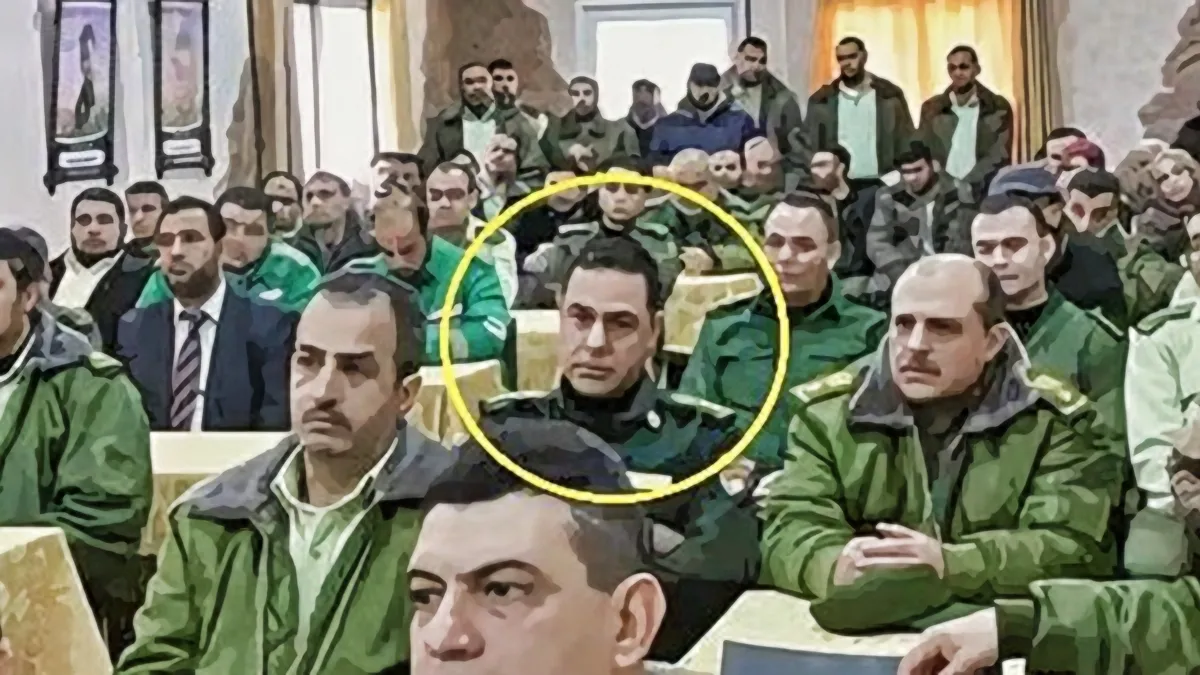Table of Contents
BICOM
BICOM provides accurate, timely and balanced information that is read by officials, experts, journalists and many others.
What happened: Overnight, Israeli security forces carried out a successful rescue of the 61-year-old Fernando Simon Marman and 70-year-old Louis Har, both taken from their homes on Kibbutz Nir Yitzhak on October 7th.
- Both men are in good condition and were taken by helicopter to hospital, where they were reunited with their families
- According to the IDF and Shin Bet, the operation was planned for some time, based on precise intelligence that was cleared operationally “once conditions permitted.”
- The operation was led by special forces who used a bomb to enter a second floor apartment in the southern Gaza city of Rafah. They killed armed guards inside and outside the building, extracting the hostages safely under heavy fire.
Context: The successful operation to rescue two hostages is being celebrated in Israel. However, 134 hostages remain in Hamas captivity, now for 128 days.
- The rescue operation was based on such detailed intelligence that they knew by which door to enter in order to kill the armed guards and not harm the hostages.
- Forces entered Rafah undercover, in an area not yet under Israeli control.
- Israeli forces are prepared for wider manoeuvre into Rafah. On Friday, Prime Minister Netanyahu announced a plan to evacuate civilians in the city.
- The Israeli government sees a ground operation in Rafah as a vital step to achieve four of the war’s objectives:
- Engage destroy and dismantle the remaining four (out of 24) of the Hamas brigades, thereby remove the last bastions of Hamas military structure.
- To block the smuggling routes from Egypt, which is crucial to preventing the re-armament of the Strip.
- To continue to hunt down the Hamas leadership which, having evaded Israeli forces elsewhere, are now seemingly underneath Rafah.
- According to the Israeli doctrine, this final operation will pressure Hamas to soften their demands over the hostages negotiations. There is also a chance that the operation could allow for further rescue missions.
- Prior to the war, Rafah had a population of around 250,000 people. It has now swelled to an estimated 1.4 million Gazans, who have fled the fighting elsewhere.
- Before Israel can start a ground offensive, they will need to establish another humanitarian corridor, probably back into Khan Yunis, once the ground operation there is completed.
- Operations along the Egyptian border, referred to as the Philadelphi Corridor, is particularly sensitive for Egypt, who are concerned that pressure will increase to open their border to allow Palestinians to enter into the Egyptian half of Rafah.
- The Egyptians are anxious and have also placed tanks and infantry troops on the border, as well as covering the border wall with heavy layers of barbed wire.
- An Egyptian delegation met with Israeli security officials in Tel Aviv on Friday to reach understandings around Rafah.
- Over the weekend, a senior Israeli official described Israel’s relations with Egypt as, “strategic, long-term and important for the continued prosecution of the war and a hostage deal. Relations between us are excellent and the operation will be coordinated.”
- The US is also concerned for Gazan civilians and continues to insist that Israel:
- Operates in coordination with the international community, and according to international law.
- Avoids noncombatant casualties as much as possible.
- Allows more humanitarian aid into the Gaza Strip.
- Some of the aid into Gaza is being held up on the Israel side, due to pressure by some families of the hostages and their supporters, who believe aid into Gaza should be contingent on their release.
- Currently, Egypt allows all the aid entering to undergo Israeli security inspection, to ensure against weapon smuggling. However, these protests could lead Egypt to deliver aid to Gaza directly via Rafah without Israeli inspection.
- Over the weekend, Foreign Secretary Lord Cameron wrote on X, that he is “deeply concerned about the prospect of a military offensive in Rafah… the priority must be an immediate pause in the fighting to get aid in and hostages out, then progress towards a sustainable, permanent ceasefire.”
Looking ahead: The IDF needs to complete operations in Khan Yunis, before the security cabinet can approve the plan to evacuate the civilian population from Rafah.
- The IDF is hoping to have the operation in Rafah finished by the start of Ramadan, in a month’s time.
- More shuttle diplomacy is likely before an operation is launched, to ensure at least a degree of coordination with the US and Egypt.
- CIA chief William Burns is expected to visit Cairo in the days ahead as he looks to press forward with a deal to release the hostages and agree a ceasefire.
- Israeli officials are also being encouraged to join the talks too.
The West Bank in the Shadow of October 7
This BICOM research paper identifies dangerous trends in the West Bank, and maps Israel’s challenges in this arena in the post-October 7 context.
Download BICOM’s briefing here
PODCAST
Episode 226 | Gaza’s water and energy
In this episode, Richard Pater speaks to Dr Elai Rettig about the Gaza Strip’s water and energy supply. Rettig explains how much of Strip’s energy supply Israel was responsible for providing prior to October 7th, the importance of fuel to the water supply, and Hamas’s neglect of the Strip’s infrastructure and its own people’s welfare. Rettig is Assistant Professor at Bar Ilan University and the head of the energy division at the Begin Sadat Centre for Strategic Studies.
Listen on Apple Podcasts, Spotify and Google Podcasts
VIDEO
“We didn’t understand Hamas at all” | Fathom Interview: Michael Milshtein
Top stories from the UK and Israeli media
The BBC reports that: “Israel says two male Israeli hostages have been rescued in a raid in Rafah, amid reports of heavy Israeli air strikes on the southern Gazan city”. It adds that “it follows warnings from the international community over Israel’s planned offensive in the city, where 1.5 million people are sheltering”. The Guardian, Times, and Telegraph all also lead with this story.
The Telegraph reports that “Egypt will not oppose Israel’s move into Rafah” as long as Palestinian civilian casualties are avoided, and that “while it will strongly criticise Israel’s assault on the densely populated city in southern Gaza, it would not take action to hinder the IDF’s operation as long as it was conducted in a way that avoided high civilian casualties”.
Other outlets including the BBC, Guardian, and The Times are more focusing on Rafah’s critical humanitarian situation which would likely be worsened by an Israeli offensive, and civilian casualties caused by Israeli airstrikes over the weekend. Sean Rayment of The Spectator has published an opinion piece warning that “The battle for Rafah could turn into a bloodbath”, writing that “It is almost impossible to see how the IDF can clear Rafah without bringing the suffering of the Palestinian people to a new and unimaginable level.”
The BBC also publishes an analytical research piece suggesting that “Videos of Gazan detainees stripped, bound and blindfolded that were filmed and uploaded online by Israeli soldiers could breach international law”.
The Economist features a piece on how “Israel scorns America’s unprecedented peace plan”, despite strong security guarantees from Arab states which would party to this proposed agreement. Contrasting the current paradigm with 1967, The Economist writes “There may be two more yeses on offer: yes to Arab security assurances to Israel, beyond diplomatic relations; and yes to Arab states’ help with reforming the Palestinian Authority so it is fit to run Gaza”.
The Financial Times reports that “Ships shun Red Sea and Suez Canal despite reduced Houthi menace” and that while UK and US airstrikes have reduced much of the threat posed to merchant shipping, while The Express suggests that the UK is edging closer towards recognising Somaliland’s sovereignty as a potential solution to the Red Sea crisis.
Sky News reports on the Labour Party’s by-election candidate for Rochdale, Azhar Ali, being branded as “completely wrong” for saying Israel deliberately allowed the 7 October massacre to give it the “green light” to invade Gaza by the party’s UK campaign coordinator. The BBC, Telegraph, and the Independent have all also reported on this story.
Yediot Ahronot reports President Biden’s call with Prime Minister Netanyahu yesterday. In a 45-minute conversation, Biden shared his worries over an operation in Rafah and asked Netanyahu to do everything to protect the civilian population. An Israeli official “said that the conversation was held in a good atmosphere,” and that Netanyahu stressed that “an operation in Rafah was essential and promised Biden: just as throughout the war we knew how to operate in compliance with international law and with the highest standards, so too we will in the next objectives. The White House statement issued afterwards said that President Biden confirmed the common goal of seeing Hamas defeated and that there should be no military operation in Rafah without a plan to ensure the safety of more than a million people.”
Yediot Ahronot also features ongoing Israel-Egypt tensions, which have risen as a result of fears in Cairo that operations in Rafah will force some of the over a million displaced Gazans currently in the city to flee into Egyptian territory. The paper cites the Wall Street Journal reporting on Saturday “that an Egyptian delegation visited Israel to discuss Rafah. As a result, it appears that Israel has dropped a plan to have the Gaza residents emigrate to Egypt and the alternative plan is to return about 1.3 million residents who were displaced back to the northern Gaza Strip and to parts of the central Gaza Strip.” Nonetheless, a source in Cairo said that Egyptian President Al-Sisi was still very angry with Prime Minister Netanyahu. Ten days ago, Sisi refused to take phone calls from Netanyahu. “They are not talking, and there is a great deal of anger on our side.” Of the need for cooperation with Egypt, Israel Hayom’s Yoav Limor writes, “the more Israel engages in this conversation, the more legitimacy it will have for an operation in Rafah. In the Egyptian context, this is also critical for the future: Cairo loathes Hamas no less than Israel does, and an open and frank dialogue with it will enlist it as a loyal ally in finding solutions that will prevent Hamas from returning to power.”
Haaretz considers the decision of Moody’s to lower Israel’s credit rating from A1 to A2, and to attach a “negative outlook” warning. “The rating agencies were patient,” says the paper. “They afforded time for the IDF to manoeuvre, for the accountant general to raise funds, for the government to rethink the state budget, and for the High Court of Justice to decide whether to strike down Basic Laws (Israel’s substitute constitution). This period of grace ended on Friday night, when Moody’s announced its decision.”
Haaretz summarises the impact of October 7th and subsequent war in Gaza on the decision: “Israel realised that the geopolitical risks it faced were greater than what it had believed. Moody’s now says that a sustainable solution for Israel’s conflict with Hamas is not guaranteed, and that the security of Israel’s population is ‘less established’ than was previously assumed before the Hamas attack. The fiscal implications of this are a longer-term increase in government expenditures, amounting to at least 1.4 per cent of the GDP, possibly closer to 2 per cent if the conflict continues or escalates beyond present expectations.”
Israel Hayom quotes Bank of Israel Governor Amir Yaron saying on Sunday that “in order to strengthen the confidence of the markets and rating companies in the Israeli economy, it is important that the government and the Knesset act to address the economic issues raised in the report.” He said the economy was “founded on solid and healthy economic foundations, while leading the world in the fields of innovation and technology… We knew how to recover from difficult times in the past and quickly return to prosperity, and the Israeli economy has the strength to ensure that this will be the case this time as well.”
Israel Hayom’s Ariel Kahana reports from Gaza, where a Hamas compound was discovered directly under UNRWA’s Gaza City headquarters. “We were not allowed to see the full room,” says Kahana, “but even from the little we saw, it’s clear this computer system would not embarrass an advanced high-tech company.”
Haaretz reports two Israeli soldiers killed in Gaza yesterday. Sgt. 1st Class Adi Eldor and Sgt. 1st Class Alon Kleinman, both 21, were killed fighting in the southern Strip.
Yediot Ahronot’s Nahum Barnea discusses the argument between National Security Minister Ben Gvir and IDF Chief of Staff Halevi at yesterday’s cabinet meeting. The two clashed over the question of removing demonstrators who block humanitarian aid trucks at the Kerem Shalom crossing. “It is not your business to go to the police commissioner and to put pressure on him in the matter of the demonstrators at Kerem Shalom,” Ben Gvir told the chief of staff. Halevi replied: “This was a security cabinet decision. The military received instructions from the security cabinet to let humanitarian aid in. If you want, change the decision.” Barnea writes: “Humanitarian aid isn’t an IDF hobby. The decision to send it into the Gaza Strip was made by the security cabinet… The truth needs to be said, even if it hurts: humanitarian aid isn’t just a lifeline for the Gazans; it is instrumental in enabling the IDF to continue to fight.
A large Hamas brigade, the last functioning brigade that Hamas has left, operates in and around Rafah. Much of Hamas’s top brass may very well be there too. The only way of doing in Rafah what the IDF did in Khan Yunis is to facilitate the safe and orderly relocation of the 1.3 million displaced Gazans who were expelled to Rafah. They need to be relocated north of Rafah after reaching understandings with the Egyptians and the Americans. Military officials are convinced that the quantity and quality of the humanitarian aid needs to be improved, otherwise a Rafah operation won’t be possible.”
Maariv reports that Israeli security forces foiled two terror attacks yesterday. In the first, an attacker with a knife was shot dead in the Old City of Jerusalem. In the second, a Palestinian tried to attack an IDF soldier outside the West Bank town of Beitar Illit
Channel 13 News includes new opinion polling showing that if elections were held today, Benny Gantz’s National Unity Party would receive over double the number of seats of the Likud – 37 to 18. The overall Knesset breakdown shows the current government on 48 seats, the opposition 64, and Hadash-Ta’al and the United Arab List a combined eight. A narrow plurality of respondents (47 per cent) said Netanyahu should resign now.
Channel 12 News’ poll returns similar results, with a majority of Israelis (51 per cent) calling for early (though not necessarily immediate) elections, and Gantz leading Netanyahu 43 per cent to 27 on who would make the better prime minister. 26 per cent are for and 53 against the new military draft bill, in which compulsory service for men would be increased from 32 months to 36 months, the exemption age from reserve duty would be raised to 46, instead of the current age of 40, while the exemption given to Haredim and Arabs is extended.
Recommended Reading
As Khan Younis offensive winds down, IDF prepares for next phase in war, Yoav Zitun, Ynet
- “This third phase in the fighting is soon to begin and is expected to last for a long time. Meanwhile, forces operating in Khan Younis, above and below ground have uncovered more of the Hamas strategic capabilities in recent days including most of their tunnels and their shafts leading to to UNRWA facilities.” Read more
Reinforcing U.S. Diplomacy to Stop a Hezbollah-Israel War, Hanin Ghaddar, Washington Institute
- “Only a comprehensive initiative aimed at curbing Hezbollah’s influence both within Lebanon and in the region stands a chance of delivering peace for the long term.” Read more
Israel scorns America’s unprecedented peace plan, The Economist
- “Israel’s triumph in the Six Day War of 1967 was met by the “three nos” at an Arab summit in Khartoum: no peace with Israel, no recognition, no negotiations. The war in Gaza seems to be having the opposite effect, American officials say. ” Read more









